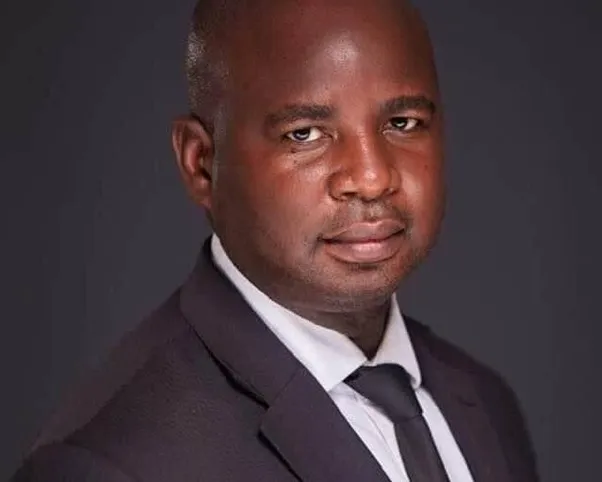A Communication team member of Ghana’s governing New Patriotic Party, Dr. Ishaq Ibrahim, has appealed to Ghanaians to keep faith with the government despite the economic challenges.
Participating in a political discussion on Accra-based TV3, the lecturer said President Nana Akufo-Addo had outperformed ex-President John Mahama in managing the Ghanaian economy.
“Despite that we had these problems [COVID-19], we still did better than the last administration that John Mahama led. John Mahama left when he had taken us to the IMF. The inflation rate was about 14%, and when we came to power, the NPP immediately brought it down to 7%. It was 7% before COVID-19 hit us, so you check it,” the private legal practitioner said.
For Dr Ibrahim’s comment, see minutes 0:49 to 1:30 of the video posted on X (formerly Twitter) by Accra-based TV 3.
DUBAWA has fact-checked the law lecturer’s claims about Mr Mahama, COVID-19, and the Ghanaian inflation rate.
Claim 1: Dr. Ishaq Ibrahim, a member of Ghana’s governing NPP communication team, has alleged that ex-President John Mahama handed over when the country’s inflation was about 14%.
Verdict: False! DUBAWA’s investigation showed that Ghana’s inflation on Dec. 31, 2016, days after Mr Mahama had lost his re-election bid, was not “about 14%,” as Dr Ibrahim claimed. The Ghana Statistical Service (GSS)’s Statistical Bulletin, released on Jan. 11, 2017, revealed the country’s inflation in Dec. 2016 was 15.4%, down by 0.1% from 15.5% recorded in Nov. 2016. Also, World Bank data pegged the country’s inflation as of Dec. 31, 2016, at 17.5%.
Verification
DUBAWA’s research revealed that Ghana’s inflation as of Dec. 31, 2016, days after Mr Mahama had lost his re-election bid, was not “about 14%,” as Dr Ibrahim claimed.
The Ghana Statistical Service (GSS)’s Statistical Bulletin, released on Jan. 11, 2017, showed the country’s inflation in Dec. 2016 was 15.4%, down by 0.1% from 15.5% recorded in Nov. 2016.
The GSS explained, “This rate of inflation for December 2016 is the percentage change in the Consumer Price Index (CPI) over the twelve months, from December 2015 to December 2016.”

Also, World Bank data published on its website pegged the West African country’s inflation at 17.5% as of Dec. 31, 2016.
The global body has disclosed it computed Ghana’s inflation data from the International Monetary Fund (IMF), the International Financial Statistics, and other data files.

Conclusion
As of Jan. 7, 2017, when ex-President John Mahama handed over to President Nana Akufo-Addo, Ghana’s inflation was not “about 14%,” as Dr Ishaq Ibrahim claimed. The GSS revealed the country’s inflation was 15.4%.
Claim 2: Dr Ishaq Ibrahim, also alleged that President Nana Akufo-Addo’s government “immediately” brought down the country’s inflation to 7% when it took office.
Verdict: False. DUBAWA’s checks with the Ghana Statistical Service (GSS) showed that President Nana Akufo-Addo did not “immediately” bring down the country’s inflation to 7%, as Dr Ishaq Ibrahim alleged. The GSS revealed that Ghana’s inflation was 11.8% as of Dec. 31, 2017, 9.4% as of Dec. 31, 2018, and 7.9% as of Dec. 2019. Also, World Bank data disclosed the country’s inflation was 12.4% as of Dec. 2017, 7.8% as of Dec. 2018, and 7.1% as of Dec. 2019.
Verification
DUBAWA’s investigation disclosed that President Nana Akufo-Addo did not “immediately” bring down the country’s inflation to 7%, as Dr Ishaq Ibrahim alleged.
The Ghana Statistical Service (GSS) revealed that Ghana’s inflation was 11.8% as of Dec. 31, 2017, 9.4% as of Dec. 31, 2018, and 7.9% as of Dec. 2019.
Although the West African country recorded single-digit inflation in 2018 and 2019, no data points to a 7% inflation in Ghana “immediately” after President Nana Akufo-Addo took office.

Also, World Bank data disclosed that the country’s inflation was 12.4% as of Dec. 2017, 7.8% as of Dec. 2018, and 7.1% as of Dec. 2019.
The World Bank data culled from the International Monetary Fund (IMF), the International Financial Statistics, and other data files showed Ghana recorded single-digit inflation in 2018 and 2019.
Conclusion
The Ghana Statistical Service (GSS) has revealed that President Nana Akufo-Addo’s government did not “immediately” bring down the country’s inflation to 7%, as Dr Ishaq Ibrahim alleged.
Claim 3: A communication team member of Ghana’s governing New Patriotic Party (NPP) claims Ghana’s inflation was 7% when it recorded its first COVID-19 case.
Verdict: False. The Ghana Statistical Service (GSS) data revealed Ghana’s inflation rate was 7.8% at the end of February 2020. The West African country recorded its first COVID-19 case on March 12, 2020, barely three months into the new year. Therefore, the country’s latest inflation rate was the data the GSS published on Mar. 11, 2020, which disclosed a 7.8% inflation rate.
Verification
DUBAWA’s investigations showed Ghana’s inflation rate was not 7% when it recorded its first COVID-19 case, as Dr Ishaq Ibrahim claimed. The Ghana Statistical Service (GSS) data revealed the country’s inflation rate was 7.8% at the end of Feb. 2020.

The West African country recorded its first COVID-19 case on March 12, 2020, barely three months into the new year.
See the country’s Ministry of Health press release confirming the first two COVID-19 cases recorded here.
Therefore, Ghana’s latest inflation rate when it detected its first virus cases was 7.8%, as disclosed in the GSS data published on Mar. 11, 2020.
Conclusion
Ghana’s inflation was not 7% when it recorded its first COVID-19 cases, as Dr Ishaq Ibrahim alleged. The GSS data revealed the country’s inflation was 7.8% at the end of Feb. 2020 in a report published on Mar. 11, 2020, barely a day after its first virus cases were detected.

